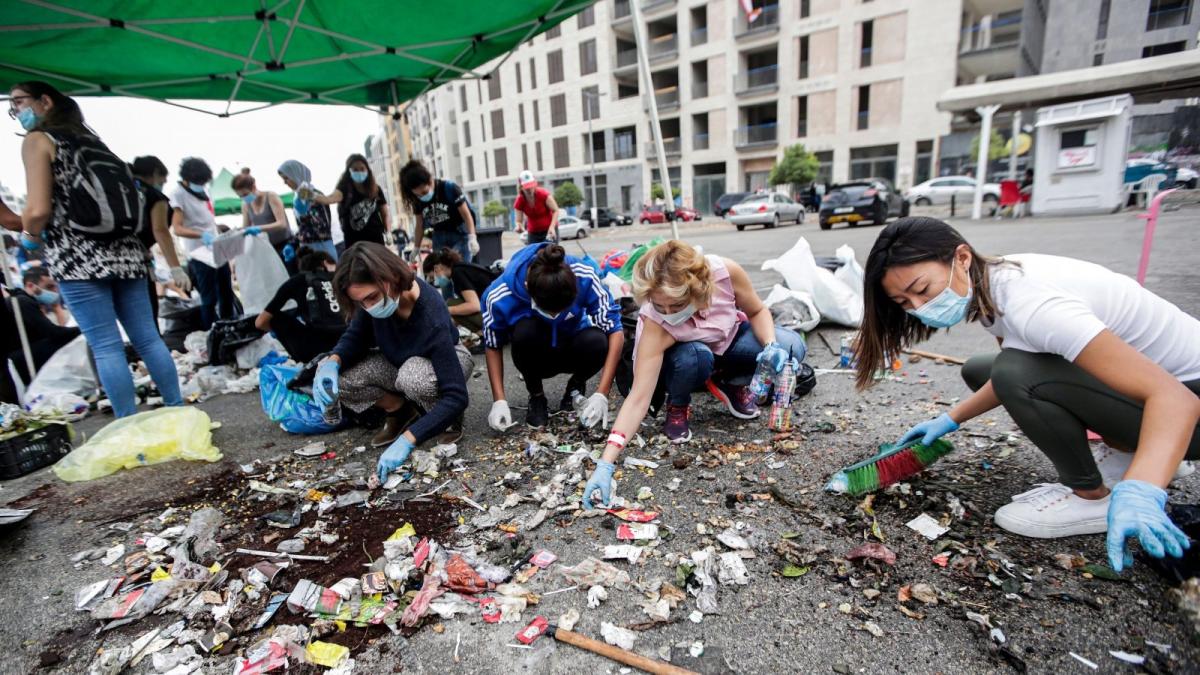This story was originally published by Sierra Magazine and is reproduced here as part of the Climate Desk collaboration.
Five Gen-Zers crouched around a small pile of trash in the center of Martyr’s Square in downtown Beirut in the early November sun. Wearing white gloves, they sorted bottle caps, cigarette butts, hookah mouthpieces, ticker tape, and plastic food packaging: all detritus from the previous day’s protests.
Though the five were students, they hadn’t been in class for 26 days. Some of their teachers were getting upset, but the activists considered cleaning up after the protests that had been roiling the country since mid-October more important than studying.
They wanted to show the country how to take care of itself, said Paul Hanna, 17, pausing her sorting. “Without recycling, most of the trash goes into the sea.”
“We don’t want to see trash in the street,” said Mira Raheb, also 17. “If we clean here, it will change [the mentality].”
Like youth activists around the world, Lebanese environmentalists are objecting to the status quo, which in Lebanon means protesting against rampant government corruption, a faltering economy, and a lo... Read more
